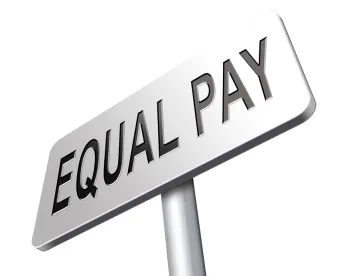Following the growing trend of states enacting laws that address pay equity in the workplace, Texas State Representative Eric Johnson introduced House Bill 290 in the Texas legislature, seeking to amend the Texas Labor Code to prohibit sex discrimination in compensation.
The proposed bill would make it illegal for an employer to include a question regarding an applicant’s wage history information on an employment application, inquire into or consider an applicant’s wage history information, or obtain an applicant’s wage history information from his or her previous employer. However, the bill does provide that an applicant may provide written authorization to a prospective employer to confirm his or her wage history, but only after the prospective employer has made a written offer of employment to the applicant that includes the applicant’s wage and benefit information for the position.
Like the federal Equal Pay Act, the proposed bill would prohibit employers from paying an employee at a rate less than an employee of the opposite sex for the same or substantially similar work. A retaliation provision is also built in to protect employees if an employer takes an adverse action or otherwise discriminates against a person because he or she opposed an unlawful act under this law; sought to enforce rights under the law; or inquired about, disclosed, compared, or otherwise discussed an employee’s wages.
If the law is enacted, an employee who wishes to file a complaint under the proposed law would be able do so with the Texas Workforce Commission by following the same procedure as he or she would for complaints of discrimination under Chapter 21 of the Texas Labor Code.
Similar Federal Legislation Pending
Texas House Bill 290 was introduced shortly after H.R. 6030, known as the Pay Equity for All Act of 2016 (PEAA), was introduced in the United States Congress. The proposed federal law would amend the Fair Labor Standards Act to make it illegal to ask an applicant to disclose information about his or her previous compensation. This restriction would apply to all applicants, regardless of gender. If implemented, the PEAA would give enforcement authority to the U.S. Department of Labor (DOL). If a violation were to be found, the DOL would have authority to assess fines up to $10,000 against the offending employers. The PEAA also includes a private cause of action that would allow applicants and employees to bring private suits against employers. Although damages are capped at $10,000, plaintiffs could also seek their attorneys’ fees.
Other States and Localities Focusing on Pay Equity
Other states and localities have enacted pay equity bills in the last year, including Massachusetts, Maryland, New Jersey, Philadelphia, California, and New York. Several states and localities—including Connecticut, Indiana, Mississippi, Missouri, and the District of Columbia—also have similar legislation pending.
Key Takeaways
Pay equity in compensation continues to be at the forefront of proposed changes to employment laws. As the laws in this area are constantly changing, employers may want to stay up-to-date on what state and federal laws apply to them and could affect their workforces. Multistate employers may want to pay particular attention to evolving requirements, especially if a universal application is utilized for applicants. As a practical matter, employers may want to review their current employment hiring practices to determine if salary history is being requested from applicants. If so, employers may want to evaluate how they are using the answer to determine starting pay.





 />i
/>i
